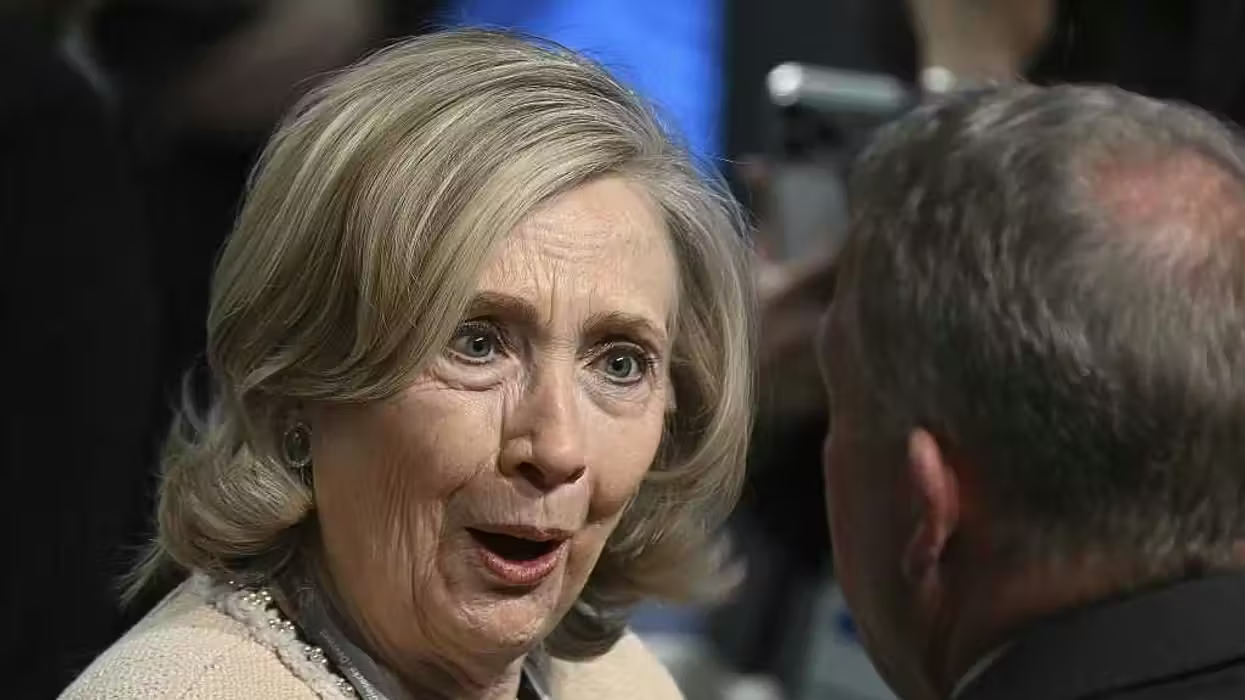
© 2026 Blaze Media LLC. All rights reserved.
"most likely to get whacked, because Ford is doing the best of the three companies"
Despite the popularity of accepting government handouts, Ford Motors has maintained its integrity by confronting the tough economy with its own resources. It's been successful. And now that could make it a union target.
There were several tactics employed by CEO Alan Mulally to help offset the financial losses brought about by the recession. He shut down or sold losing brands like Mercury and Jaguar, maintained and improved the well-known Taurus line of cars, and he helped to introduce several successful small cars (which, with skyrocketing gas prices, were very well-timed).
Ford even resorted to mortgaging some of its most valuable assets (including the iconic blue oval symbol) to combat tough financial losses. In short, they did what any self-reliant and responsible person would do to help pay the bills.
It worked.
Ever since forging ahead on their own and without government assistance, Ford has managed to surpass both Chrysler and General Motors (both bailout recipients) in sales. In July 26, Ford announced that their revenue jumped 13 percent to $35.5 billion in the second quarter, as the number of vehicles sold globally rose 7 percent.
However, this is precisely why there may be some trouble ahead for Ford.
Chrysler, GM, and Ford all have contracts with the United Auto Workers (UAW) that expire September 14 of this year.
The UAW, while forbidden to strike or make greater demands of the two Washington-influenced automakers, will most certainly go after the one successful company that has been able to fend off the worst of the recession.
Ford Motors knows a struggle with the UAW is coming and even tried to prevent it, but to no avail. Earlier this year, Ford introduced a ballot initiative that would grant them exemptions similar to those that GM and Chrysler have. The UAW rejected it. They have much bigger plans for Ford when the time comes to renegotiate their contracts.
"Ford is the most likely to get whacked, because Ford is doing the best of the three companies," says a U.S.-based executive of a foreign automaker in a recent Fortune article. "[Ford CEO] Mulally got the fattest pay package. And don't forget, the government saved Chrysler and GM, in part for the sake of the union, so it would be ungrateful, if not incredibly self-destructive, for UAW to put the squeeze on those two."
The UAW recently has shrunk to a third of its size. Ford's UAW work force alone has declined to about 41,000 from about 100,000. It is safe to assume that when union contracts go up for negotiations, the UAW will want to turn these numbers around and Ford will be the punching bag.
But there are some elements that could give Ford some leverage.
A UAW strike against Ford may prove be counterproductive to the union's plans for Ford in the south where Volkswagen AG has recently opened factories. More than 80,000 workers applied for thousands of VW jobs in Chattanooga and recent hires are not likely to be interested in joining a union, much less one that may be going on strike. Still, the UAW negotiators must bring some increase in pay or benefits to his members-- otherwise they may ask themselves why they are they paying union dues each month.
Furthermore, Ford is not backing down from its demand that the UAW ante-up and shoulder a greater share of health-care costs paid to union workers and their families. According to the automaker's own data, UAW members only pay about 5 percent of the health care costs as compared to 30 percent that Ford's salaried staff pays.
 If the UAW agrees to help offset the cost of union worker's insurance, Ford has promised to improve profit-sharing, which helps to incentivize and ensure product quality and workplace efficiency.
If the UAW agrees to help offset the cost of union worker's insurance, Ford has promised to improve profit-sharing, which helps to incentivize and ensure product quality and workplace efficiency.
"Ford can maintain what it's got in these negotiations, but it can't win anything new. Even maintaining what it's got will be a win. I'm not sure the UAW leadership is bent on a strike. If it happens, it probably will be short and symbolic," said Aaron Bragman, an analyst for IHS Global Insight.
Bring it on.
According to most marketplace analysts, a UAW strike would be better for shareholders -- especially the Ford family -- than bankruptcy and recapitalization under the thumb of the U.S. Treasury Department would have been.
Ford sales continue to benefit because most consumers prefer to buy vehicles from a company that has not been tainted by Washington D.C. tinkering. Ford forged its own path and refused to cave to government bailouts and for that they should be commended. But instead of celebrating, they must prepare to fend off bureaucratic leeches while simultaneously competing with their less-successful rivals.
But then again, they are Ford tough.
Want to leave a tip?
We answer to you. Help keep our content free of advertisers and big tech censorship by leaving a tip today.
Want to join the conversation?
Already a subscriber?
more stories
Sign up for the Blaze newsletter
By signing up, you agree to our Privacy Policy and Terms of Use, and agree to receive content that may sometimes include advertisements. You may opt out at any time.
Related Content
© 2026 Blaze Media LLC. All rights reserved.
Get the stories that matter most delivered directly to your inbox.
By signing up, you agree to our Privacy Policy and Terms of Use, and agree to receive content that may sometimes include advertisements. You may opt out at any time.






